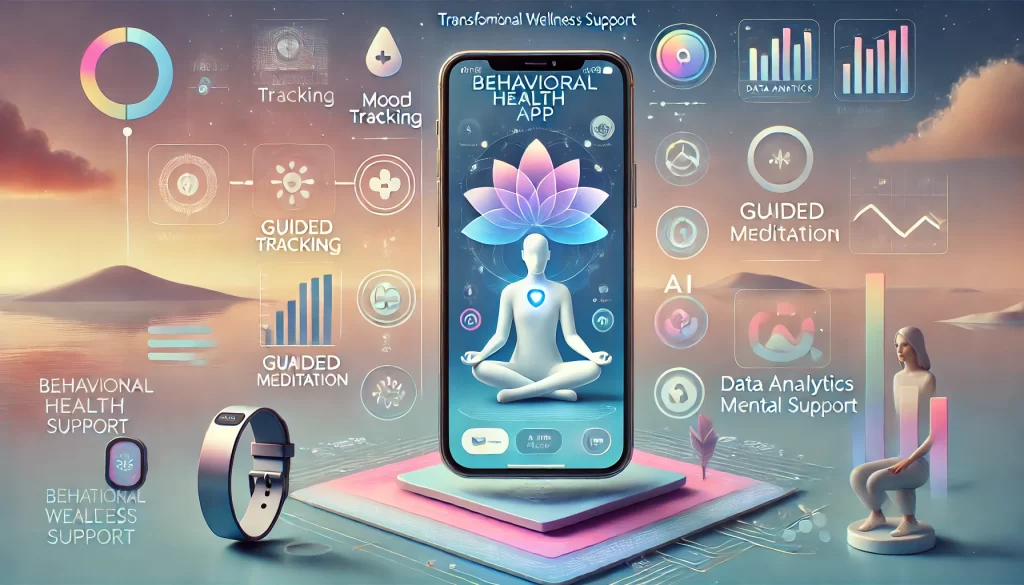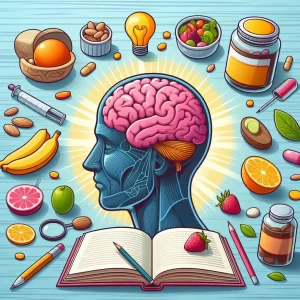How Behavioral Health Apps Are Redefining Mental Wellness Support

How Behavioral Health Apps Are Redefining Mental Wellness Support. The digital age has ushered in a new era for mental health care. With the rise of behavioral health apps, accessing mental wellness support has never been easier or more personalized. These apps are not just convenient—they’re fundamentally transforming behavioral health by addressing barriers like stigma, affordability, and accessibility. Let’s explore how these apps are redefining mental wellness and why they’re becoming an essential part of the modern healthcare landscape.
1. Accessibility Anytime, Anywhere

Behavioral health apps break down geographical and logistical barriers, providing support that’s always within reach. Whether you’re in a bustling city or a remote area, these apps put mental wellness tools in the palm of your hand.
Key Features:
- 24/7 Availability: Unlike traditional therapy, apps like BetterHelp and Talkspace connect users to licensed therapists at any time.
- Language Options: Many apps offer multilingual support, catering to diverse populations.
- Affordable Solutions: Subscription-based models provide a cost-effective alternative to in-person therapy.
By making mental health care accessible on-demand, these apps are empowering individuals to take charge of their wellness journey.
2. Personalized and Data-Driven Support
Behavioral health apps harness the power of artificial intelligence (AI) and data analytics to deliver tailored interventions. This personalization ensures that users receive support suited to their unique needs and challenges. (Read More: Holistic Wellness Hiking Retreats: Balancing Fitness and Mindfulness on the Trails).
How It Works:
- AI Chatbots: Apps like Wysa use AI to simulate conversations, offering exercises based on cognitive behavioral therapy (CBT).
- Progress Tracking: Apps monitor mood patterns, sleep habits, and stress levels, creating personalized insights over time.
- Actionable Suggestions: Based on collected data, users receive daily reminders, self-care tips, and mindfulness exercises.
This data-driven approach ensures that care evolves with the user, addressing both short-term concerns and long-term goals.
3. Breaking Stigma Around Mental Health

Despite growing awareness, mental health stigma remains a significant barrier. Behavioral health apps are helping normalize seeking support by offering a discreet, judgment-free environment. (Read More: How Fitness Bands Are Revolutionizing Personal Health Monitoring).
Why It Matters:
- Privacy First: Apps provide confidential spaces, making it easier for users to explore mental health without fear of judgment.
- Normalizing Conversations: Many apps feature peer communities, fostering open discussions and shared experiences.
- Youth Engagement: By blending technology with mental health, these apps resonate with younger generations who are more comfortable with digital platforms.
As stigma decreases, more individuals are likely to seek the help they need, fostering a culture of openness around mental wellness.
4. Integration with Wearable Technology
Behavioral health apps are increasingly integrating with wearable devices, offering real-time insights into physical and mental well-being. This fusion is revolutionizing how users monitor and manage their mental health. (Read More: Top 5 Body Fitness Trends You Need to Know in 2024).
What’s New:
- Stress Monitoring: Wearables like Fitbit and Apple Watch sync with apps to track stress levels based on heart rate variability (HRV).
- Mindfulness Prompts: Apps send real-time alerts when stress spikes, encouraging users to pause and engage in breathing exercises.
- Holistic Health Tracking: Combining physical activity, sleep data, and mood analysis, apps provide a comprehensive picture of well-being.
By merging technology with behavioral health, these innovations promote proactive care and early intervention.
5. Expanding the Scope of Self-Help Tools

While traditional therapy remains invaluable, behavioral health apps are expanding the toolkit for mental wellness. From guided meditations to interactive journaling, these apps cater to a wide range of needs and preferences.
Popular Tools Include:
- Meditation and Mindfulness: Apps like Headspace and Calm offer guided sessions to reduce stress and improve focus.
- Crisis Management: Apps such as NotOK provide a “panic button” feature, instantly alerting trusted contacts in emergencies.
- Habit Formation: Platforms like Fabulous help users establish routines that support long-term mental wellness.
These tools complement traditional therapy, offering day-to-day support that fits seamlessly into modern lifestyles.
Conclusion article How Behavioral Health Apps Are Redefining Mental Wellness Support
Behavioral health apps are more than just a trend—they’re a pivotal part of how mental health care is transforming behavioral support in today’s world. By offering accessible, personalized, and stigma-free solutions, these apps are empowering individuals to prioritize their mental wellness.
As technology continues to evolve, the potential for behavioral health apps is limitless. They’re not replacing traditional care but enhancing it, making mental health support more inclusive and adaptable than ever before. If you haven’t explored these tools yet, now is the perfect time to see how they can fit into your wellness journey. After all, mental health care is for everyone—and these apps are here to prove it.







4 thoughts on “How Behavioral Health Apps Are Redefining Mental Wellness Support”
Comments are closed.